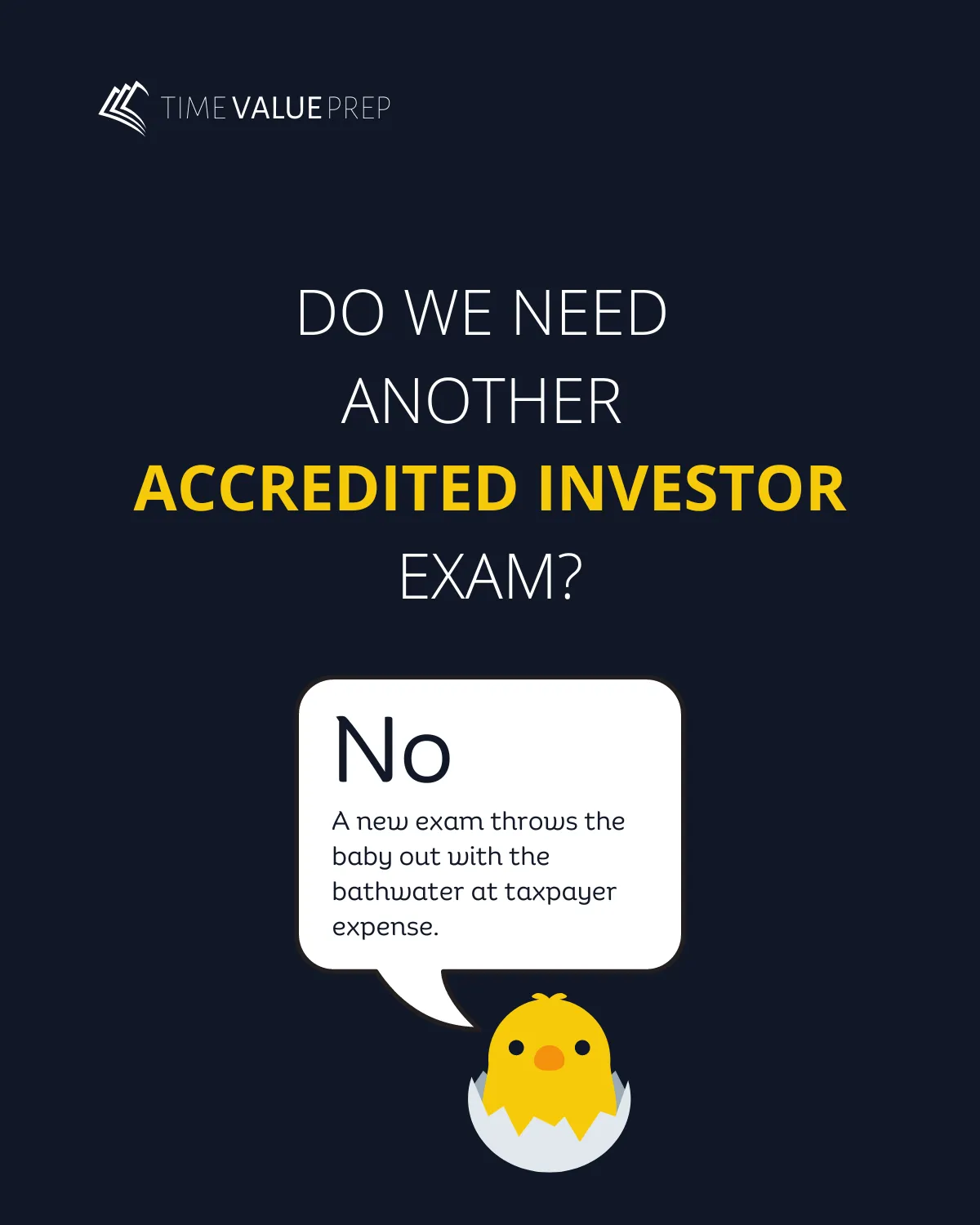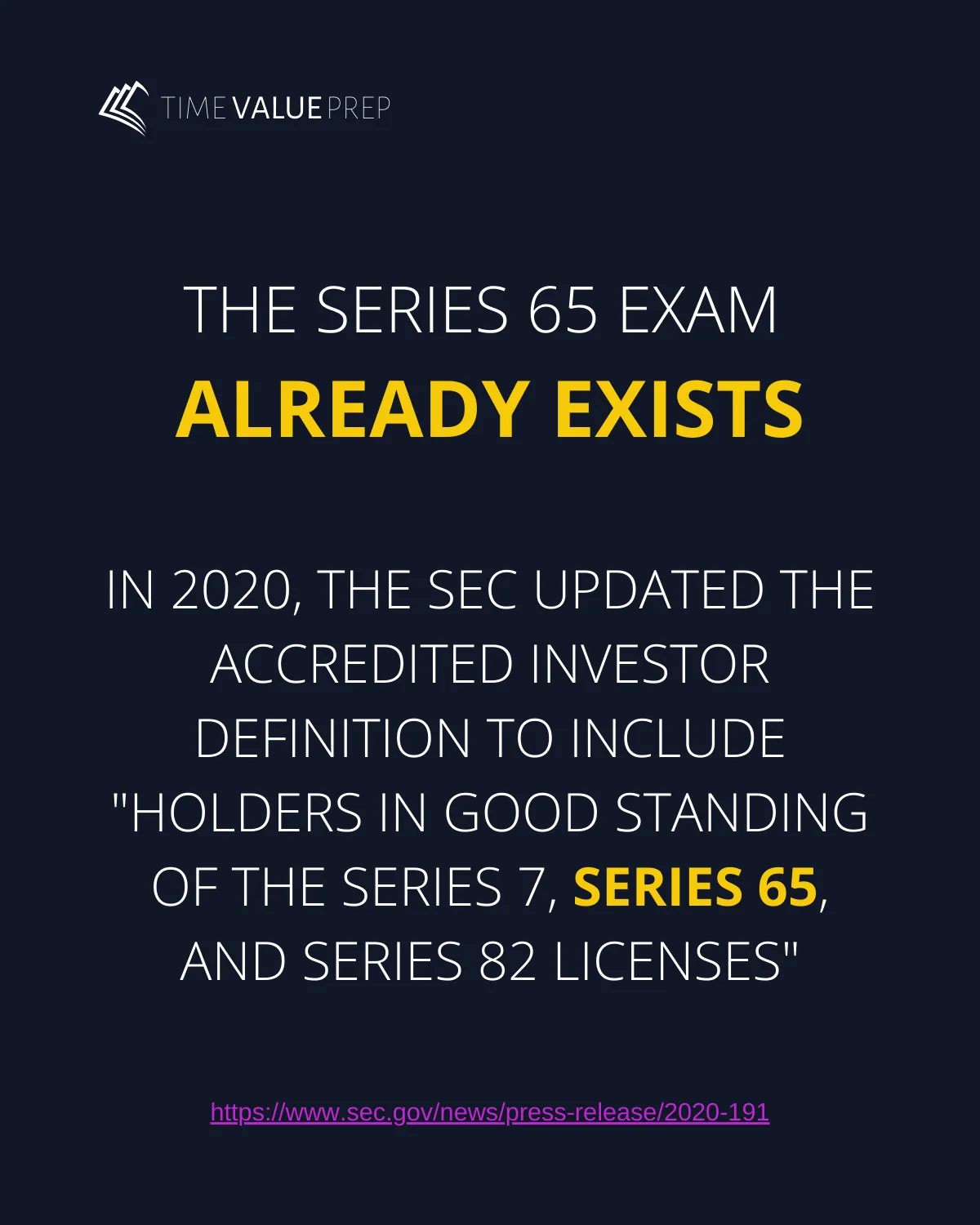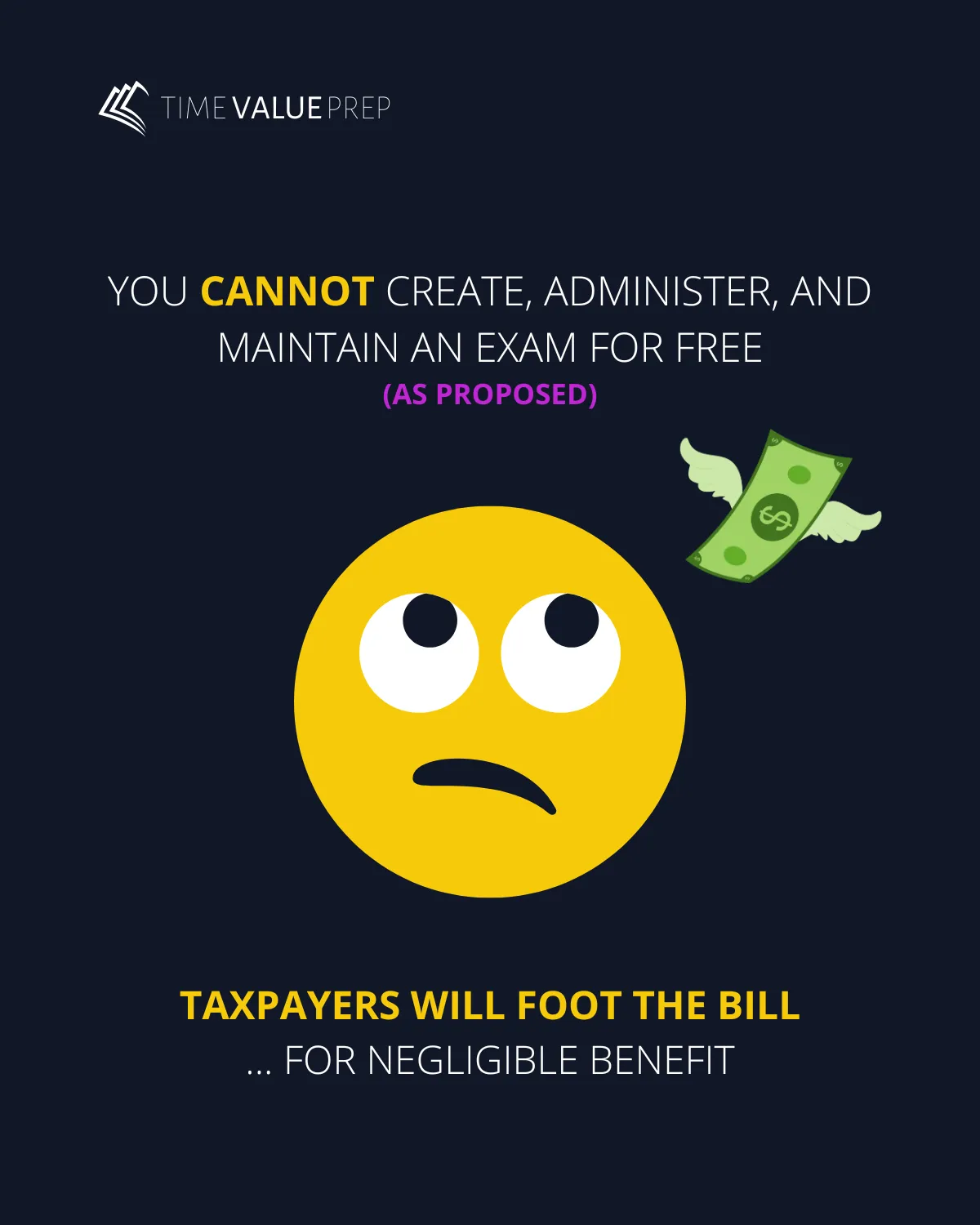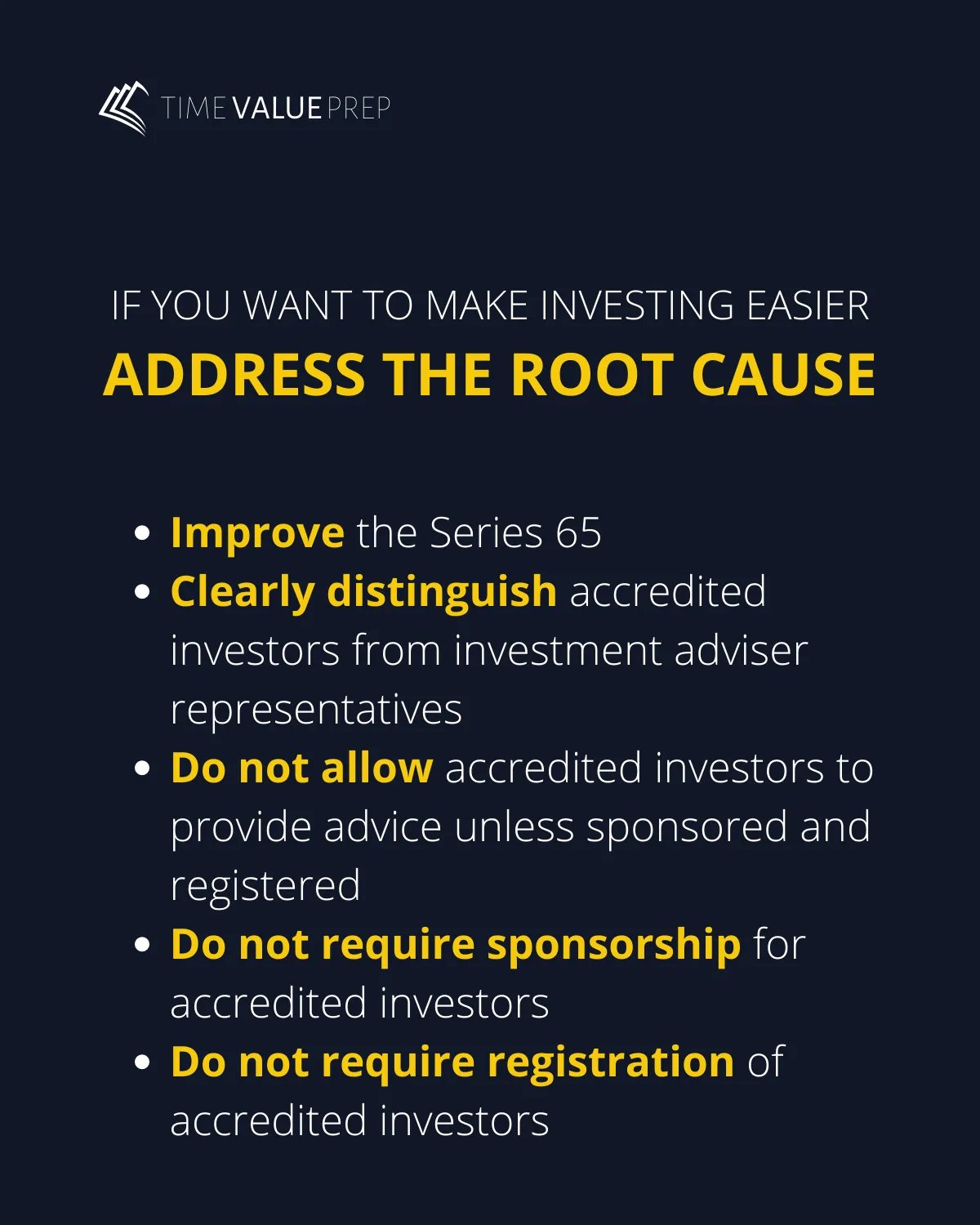We Do Not Need Another Accredited Investor Exam

Brent Sullivan
Founder

The “Equal Opportunity for All Investors Act of 2023” is Clumsy
The recent introduction of the “Equal Opportunity for All Investors Act of 2023” has sparked a heated debate in the financial community. The Act, designed to amend the Securities Act of 1933, mandates the creation of a new certification exam for accredited investors. However, there is a crucial question that lawmakers and industry experts must consider: Do we need another exam?


The Series 65 exam – the Uniform Investment Adviser Law Examination – already exists and is recognized by the SEC as a viable path toward becoming an accredited investor. It tests individuals on investing principles, ethics, and portfolio management, among other vital areas, ensuring they know to give sound financial advice. It would be more sensible to update Series 65 to cover the specific knowledge and competencies required for accredited investors.


Taxpayers benefit from leveraging an existing framework than creating a new one from scratch. Modifying the Series 65 exam would involve fewer resources and, thus, would be more cost-effective. This strategy aligns with the principle of fiscal responsibility, a critical aspect of managing public funds.

Moreover, while the proposed examination intends to democratize investing by increasing accessibility, it seems to overlook the real challenge: the bureaucratic obstacles investors face after the exam. The primary barrier to entry for private investment isn't the lack of an exam but the post-exam hassle and expense of securing an investment adviser sponsor and registering with the proper authorities.
By leveraging an existing exam like the Series 65 and focusing on streamlining the regulatory landscape, we could democratize private investing, benefiting potential investors and taxpayers.

While the “Equal Opportunity for All Investors Act of 2023” is a step in the right direction, it misses the mark by focusing on a new exam while overlooking existing avenues and more significant challenges. A prudent approach would be to update the Series 65 exam and work on making the post-exam process more streamlined and user-friendly. Doing so would save taxpayers' money and ensure that the pathway to becoming an accredited investor is both thorough and efficient.